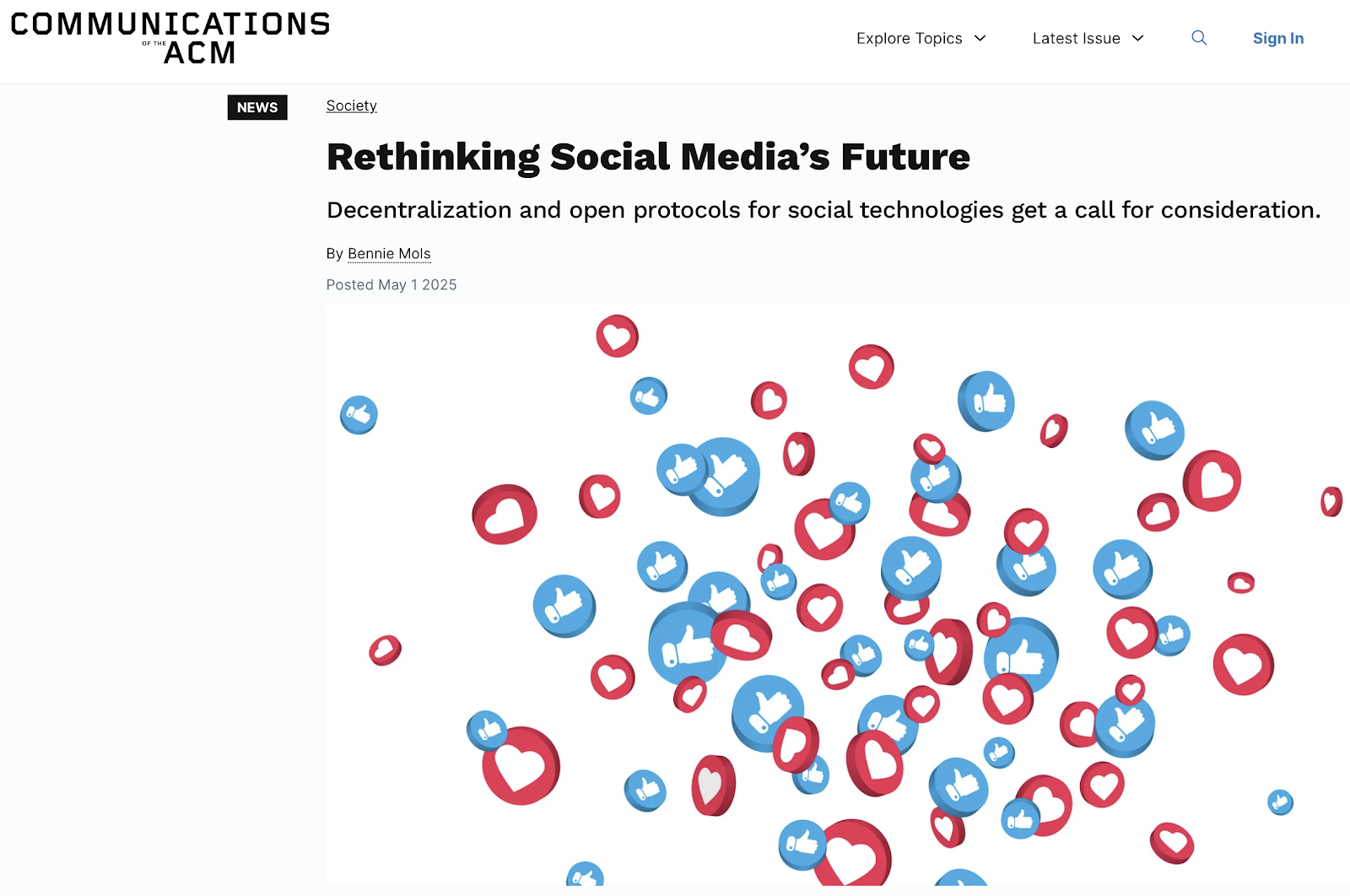This article was written for ACM News and published on 1 May 2025.
It was only 15 to 20 years ago that social media platforms like Facebook, Twitter (now X), YouTube, and Instagram were hailed as drivers of social connections, multipliers of knowledge and experiences, and even as catalysts for better-functioning democracy. In fact, Time magazine chose Facebook co-founder Mark Zuckerberg as its 2010 Person of the Year, “for changing how we all live our lives.”
“Sure, there are lots of benefits of social technologies,” said Sarita Schoenebeck, a professor in the School of Information at the University of Michigan. “They allow people to participate, to enjoy social relations online, to advocate and to learn new things. But now the harms feel very urgent and growing: disinformation, harassment, quality of information, security, mental health. Are social technologies now actually helping society? And if not, what to do about it?”
It was only 15 to 20 years ago that social media platforms like Facebook, Twitter (now X), YouTube, and Instagram were hailed as drivers of social connections, multipliers of knowledge and experiences, and even as catalysts for better-functioning democracy. In fact, Time magazine chose Facebook co-founder Mark Zuckerberg as its 2010 Person of the Year, “for changing how we all live our lives.”
“Sure, there are lots of benefits of social technologies,” said Sarita Schoenebeck, a professor in the School of Information at the University of Michigan. “They allow people to participate, to enjoy social relations online, to advocate and to learn new things. But now the harms feel very urgent and growing: disinformation, harassment, quality of information, security, mental health. Are social technologies now actually helping society? And if not, what to do about it?”
The complete article can be read here.

